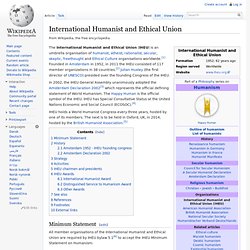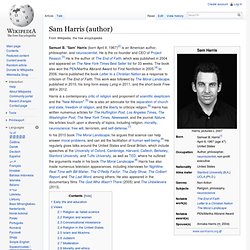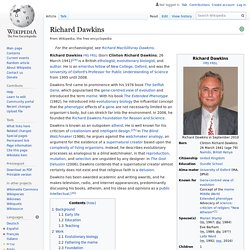

International Humanist and Ethical Union. International Humanist and Ethical Union. The International Humanist and Ethical Union (IHEU) is an umbrella organisation of humanist, atheist, rationalist, secular, skeptic, freethought and Ethical Culture organisations worldwide.[1] Founded in Amsterdam in 1952, in 2011 the IHEU consisted of 117 member organizations in 38 countries.[2] Julian Huxley (the first director of UNESCO) presided over the founding Congress of the IHEU.

In 2002, the IHEU General Assembly unanimously adopted the Amsterdam Declaration 2002[3] which represents the official defining statement of World Humanism. The Happy Human is the official symbol of the IHEU. IHEU has Special Consultative Status at the United Nations Economic and Social Council (ECOSOC).[4] IHEU holds a World Humanist Congress every three years, hosted by one of its members. The next is to be held in Oxford, UK, in 2014, hosted by the British Humanist Association.[5] Minimum Statement[edit] History[edit] Amsterdam 1952 - IHEU founding congress[edit] Amsterdam Declaration 2002[edit] Buddhism: Principles of Buddhism. Making sense of Tantra. The Essence of Tibetan Buddhism by Lama Thubten Yeshe.
The Tibetan Book of the Dead. The Tibetan Book of Living and Dying. The Book On the Taboo Against Knowing Who You Are. Posted on | September 8, 2010 | No Comments The Book On the Taboo Against Knowing Who You Are by Allan Watts is a radical piece about the unrecognised but mighty taboo—our tacit conspiracy to ignore who, or what, we really are.

Briefly, the thesis is that the prevalent sensation of oneself as a separate ego enclosed in a bag of skin is a hallucination which accords neither with Western science nor with the experimental philosophy-religions of the East—in particular the central and germinal Vedanta philosophy of Hinduism. This hallucination underlies the misuse of technology for the violent subjugation of man’s natural environment and, consequently, its eventual destruction. Download the free pdf ebook here (118 pages) : Evolutionism. Books. Live Webcasts: Introductory Teachings on Buddhism for Young Tibetans - English Language. Freedom From Religion Foundation. Sam Harris (author) Samuel B.

"Sam" Harris (born April 9, 1967)[2] is an American author, philosopher, and neuroscientist. He is the co-founder and CEO of Project Reason.[3] He is the author of The End of Faith, which was published in 2004 and appeared on The New York Times Best Seller list for 33 weeks. The book also won the PEN/Martha Albrand Award for First Nonfiction in 2005.[4] In 2006, Harris published the book Letter to a Christian Nation as a response to criticism of The End of Faith. This work was followed by The Moral Landscape, published in 2010, his long-form essay Lying in 2011, and the short book Free Will in 2012.
Harris grew up in a secular home in Los Angeles, and is the son of the TV producer Susan Harris,[9] and actor Berkeley Harris. In 2009, Harris earned a Ph.D. degree in cognitive neuroscience at the University of California, Los Angeles,[11][20][21] using functional magnetic resonance imaging to conduct research into the neural basis of belief, disbelief, and uncertainty.[11][21] Richard Dawkins. English ethologist, evolutionary biologist, and author Richard Dawkins FRS FRSL (born Clinton Richard Dawkins; 26 March 1941)[24] is a British ethologist, evolutionary biologist, and author.

He is an emeritus fellow of New College, Oxford, and was the University of Oxford's Professor for Public Understanding of Science from 1995 until 2008. Dawkins first came to prominence with his 1976 book The Selfish Gene, which popularised the gene-centred view of evolution and introduced the term meme. With his book The Extended Phenotype (1982), he introduced into evolutionary biology the influential concept that the phenotypic effects of a gene are not necessarily limited to an organism's body, but can stretch far into the environment. In 2006, he founded the Richard Dawkins Foundation for Reason and Science.
Dawkins is known as an outspoken atheist. Background[edit] Christopher Hitchens. TrustingDoubt. God's Emotions: Why the Biblical God is So Very Human Play 9 Part Series: What are emotions?

Can an all knowing, all powerful, perfectly good God have them? What would that mean? --This series takes us into the budding field of affective science and then, fortified with a better understanding of emotions, we turn to examine traditional or orthodox Christian concepts of God. Christian Belief Through the Lens of Cognitive Science What is the mental machinery that lets us form beliefs? What If Adam's Rib is No Longer Willing To Be The Church's Backbone? The San Antonio Atheists Group (San Antonio, TX) Religulous - Bing Movies. Internet Sacred Text Archive Home.